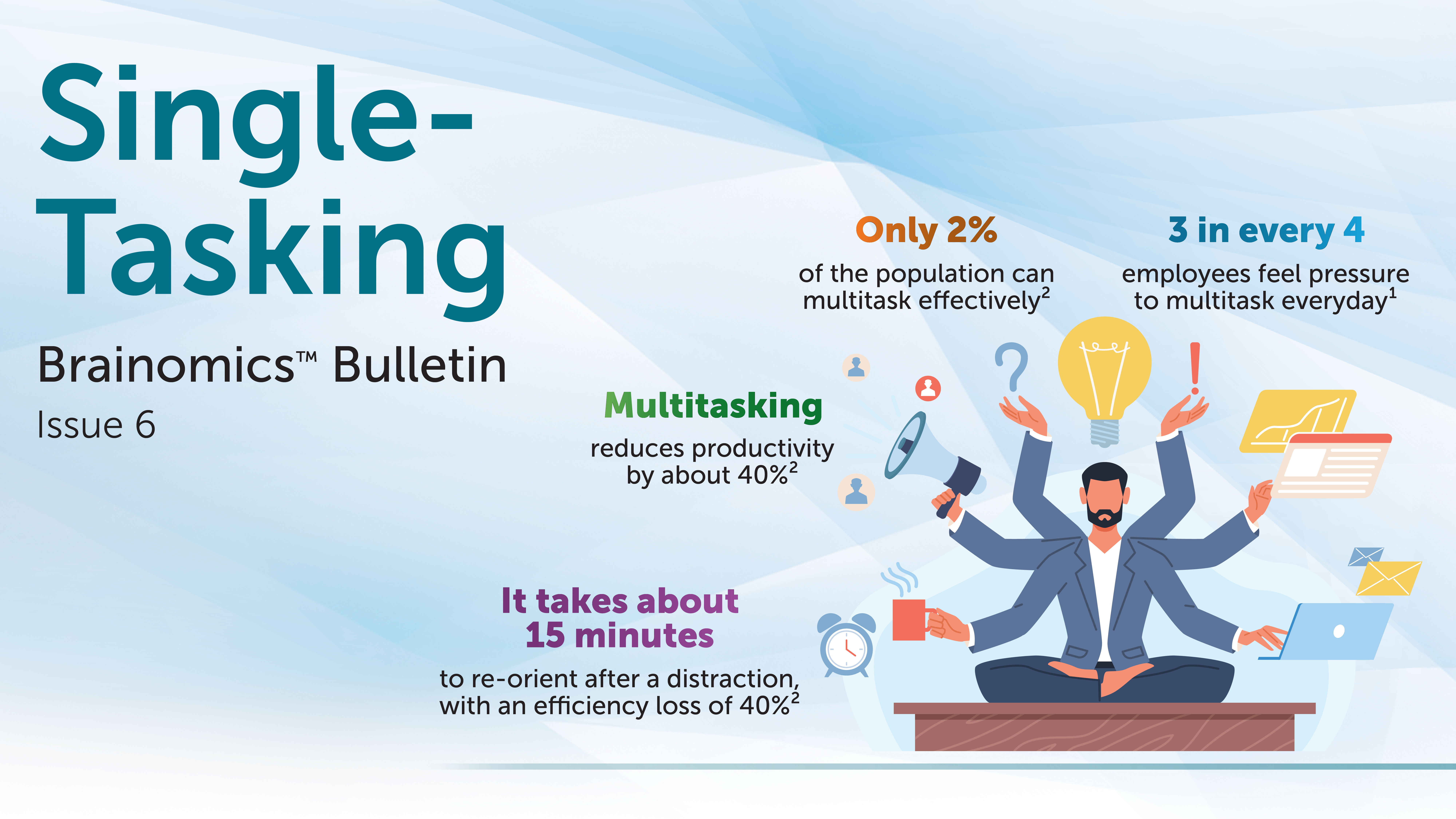To Summer Rot or Not, That Is the Question
Brainomics Issue 11Open Printable PDFThe Brainomics® team usually focuses on the economics of good brain health. But with our young future economists pouring out of the classrooms for the summer, today we’re asking instead: is it okay to let young brains “rot” during the summer months?
Many families face pressure to pack enrichment for their kids into every moment. Their worry? Without structure and rigorous brain engagement, kids’ brains will rot over the summer months.But is that really a thing? Giving kids space to be unstructured and even bored may actually give young brains what they need the most – and even help to improve their brain health in unexpected ways.Neuroscience tells us that the brain doesn't shut off when formal education stops. In fact, when kids are free from school routines, they can engage in self-directed and novel activities that activate areas of the brain linked to imagination and internal reflection.1,2,3 School places heavy demands on brain skills like attention, critical thinking, memorization and (hopefully) executive function.4 Sustained focus without recovery time can wear down the brain’s ability to plan, make decisions and self-regulate.5 Breaks – longer ones like summer vacation and shorter ones like weekends – offer a cognitive reset.
Novelty, unstructured exploration and, yes, boredom during school breaks help to reset mental patterns so kids can come back to school ready to re-engage with greater flexibility, creativity, and problem-solving abilities.5
Time off gives kids a chance to mentally marinate and process what they’ve learned, explore interests, and strengthen skills like curiosity, independence and relationship-building outside the classroom.4,6 Being bored teaches kids to make their own fun, which builds confidence and agency. But what about screen time? The phrase “brain rot” is often used to describe excessive screen time.7 Excessive, passive scrolling can dysregulate the brain’s reward system, dampen motivation, and interfere with sleep – especially for kids.5 But rotting on screens is different than marinating in imagination. Screens can be used as tools; they just shouldn’t replace real-world interactions or outdoor play.8 When used creatively, like to film short movies or design a game, they can support learning and self-expression. The key is balance and to not let screens replace imagination. And what about the danger of the summer slide – the loss of academic learnings over the summer? While research findings are mixed, some researchers suggest that a certain amount of forgetting is normal, and even useful, if kids continue applying what they’ve learned in meaningful ways.9Our experience working with educators and students from fifth grade and up reinforces this. We find that in the classroom or out, when kids engage their executive functioning skills – such as critical thinking, problem solving, and asking deep questions – their learning becomes richer and more meaningful than rote memorization. So even if some facts fade over the summer, this doesn’t pose a long-term threat to their learning journey. Moreover, unstructured learning can happen all the time and doesn’t have to look like worksheets and all-day camps. Letting kids find projects that interest them keeps their brain challenged in ways that are both meaningful and self-directed. Baking can teach chemistry. Building forts involves physics and spatial reasoning. And our favorite: lemonade stands teach about economics. Summer doesn’t have to be fully programmed to be a productive time for the brain. Sometimes, the best brain growth happens when we let kids marinate. Check out 5 free summer activities we have prepared, offering something for everyone.





